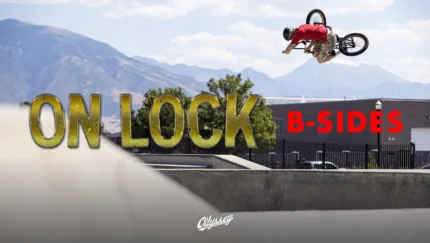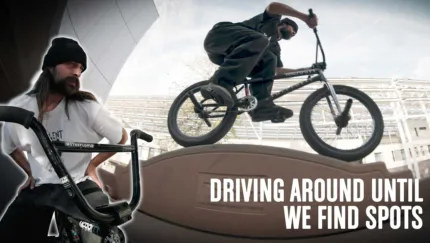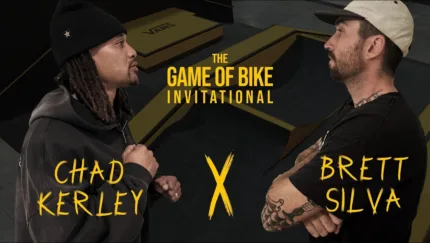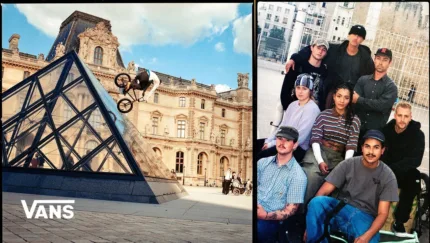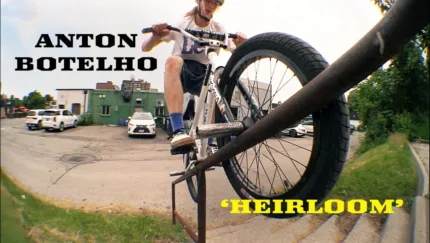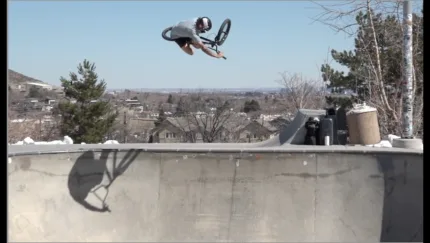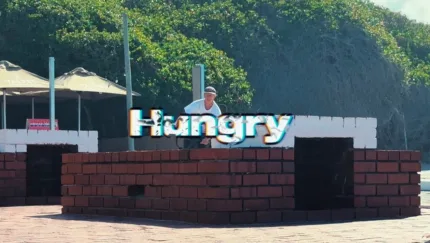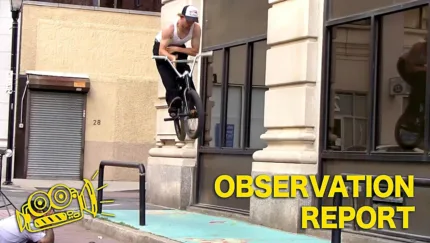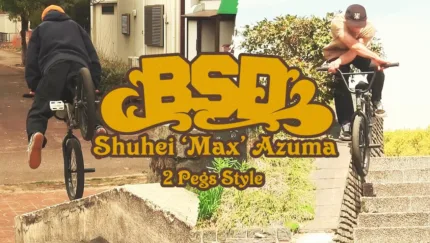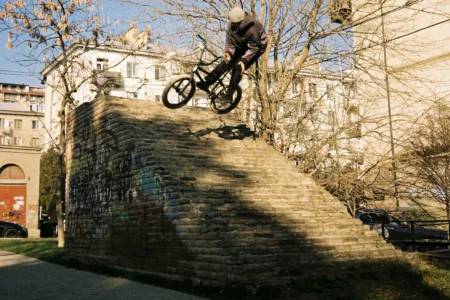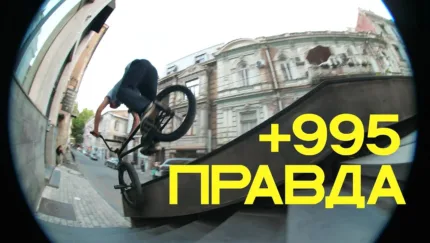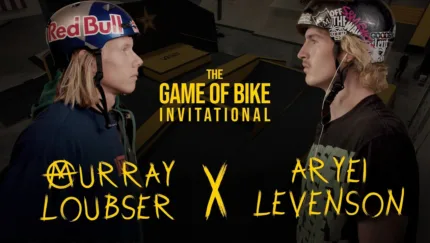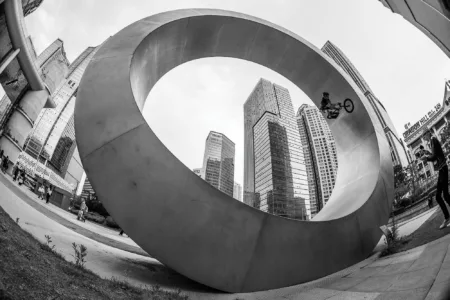
Fred Murray - Life After Print
"A Vlog will never be iconic."
Intro by Paul Robinson | Questions by Will Smyth | Originally published in DIG Magazine Issue 99.8 - 2017
— Survival is a primal instinct that’s rooted in every human being and at some point every person has to select an option that will least upset the course of his or her life. Decisions will need to be made, hard decisions that compromise creativity and passion eventually and possibly steering you away from your goal. Social media didn’t just happen overnight, it grew into what it is today and combined with the rate of hi-tech developments it formed a giant destructive monster that would rip open the stable landscape of BMX media and leave a strange and unfamiliar one in its wake.
— During this transition many BMX photographers realised they couldn’t earn a living doing what they did before. Magazines were not being printed because kids didn’t read or buy them due to information being already available on the web, and brands didn’t need to pay photographers for photos anymore. I don’t think anyone was fully aware at the time what was happening as social media was growing and video was becoming more and more exciting to the younger generation. Once legitimate media was being bypassed and it seemed like almost everyone was way too distracted by what was going on inside his or her phones to really care.
— Survival kicked in for the best BMX photographers at this point and sent them off in many different directions with a lot to think about. For DIG Magazine Issue 99.8 we spoke with with seven of the world’s most influential BMX magazine photographers of the past decade (and beyond), to find out just how those survival instincts affected them since the demise of their respective print titles, including our own, and how they manage to keep shooting. I think it was Barack Obama who said, “If you run you stand a chance of losing, but if you don’t run you’ve already lost.” - PR
— Next up is Fred Murray, someone who has not only been a part of DIG for 15 years, but someone who now works as our print and online editor/decision maker, alongside DIG's founder Will Smyth. Despite an underhand attempt by our ex-publisher to poach him for RIDE UK during DIG's online transition (and switch back to independent publishing) back in 2014, Fred has remained loyal to his roots in BMX media. Living proof that not everyone just does things for the money.


"I think the drive to capture what you love doing will outweigh the money side every time; except if you're the kind of person who expects something for nothing, which unfortunately seems to be an ever-growing trait in society."- Fred Murray
How has your day to day work changed since DIG 99 came out in 2014. How has your work had to change?
Pretty much everything has changed apart from the actual photographic element. There's less time and money but more things to get done, the deadline has gone from bi-monthly to daily, and we have way shorter lunches! However, we are now fully in control of DIG and don't have anyone to answer to but ourselves - the freedom is both empowering and terrifying. Being able to reduce the amount of issues we put out every year to create a much stronger product in the end has been really motivating.
Was there a point when you noticed that BMX photography and print was becoming less relevant to the riders even before the demise of print?
To be fair I think it was losing it's relevance even when I started shooting over 12 years ago. I was lucky enough to catch the tail-end of people still being excited about a cover or even aware of what was going in the mags. I slowly noticed that a previously un-questioned fisheye position was now being eased into ‚"Any chance you could crouch behind that bush? I mean it's just the photo, right?‚" This became too real when a rather bossy video maker demanded that I lay under a platform riddled with fire ants. For a lot of riders now I'd honestly say they are more excited about a photo going on Instagram than in a magazine or book - instant approval and praise seems to have outweighed the joy and impact of print for some. However, I can honestly say that it feels like it's kind of doing a circle again - is it just me or are there more zines than ever?
Tell us more about your current job setup and how you've had to adapt to stay employed.
The days of the monthly pay cheque rolling in are long gone. Scraping by in BMX is not a new thing but it really has become a battle. DIG requires about 95% of my time and provides about 50% of my income - there's a lot to do to keep the dream alive. Luckily we are able to run a small agency project on the side fulfilling content for Red Bull which still allows me to dedicate most of my time to BMX. Even then I still need to work for a local agency, shooting all sorts from recycling facilities to 5-a-side football. To survive these days you need to be a jack of all trades. I've taken on some work MTB work which is super fun and comparatively relaxing! I've often thought, ‚"Man, I could be doing weddings and making more money and working less‚" but it's just not BMX and that's what I do.

Here and below: Julian Molina at home in Colombia. Shot for the 2017 Red Bull x DIG/This Is Ours video project 'Out Of Frame'. Photos by Fred Murray
Did your style of photography have to change as riding changed?
Definitely. When I started out I was shooting tables and turndowns but I realized that things were changing pretty early on and made an effort to try and represent street riding in the best way possible. Just because something is technical and complicated, it doesn't mean you can't capture it in an appealing way. Sequence flash and stitching became my personal evening classes and my eyes widened to a number of different elements of riding. I'm not going to lie though, I still get super excited when someone wants to blast a gap or jump off a roof - that shit never gets old.
With less and less people being employed exclusively as BMX photographers with anyone, do you think it will any effect on BMX photography as a craft?
As a craft, I doubt it will have a major impact, apart from the quality and opportunities. BMXers are a naturally hardy and creative people that will always do their thing even when money isn't a factor. I mean I started shooting without realizing it was a career option - that only came as a bonus later on. I think the drive to capture what you love doing will outweigh the money side every time, except if you're the kind of person who expects something for nothing, which unfortunately seems to be an ever-growing trait in society.
Will it be a negative for recording the history of BMX?
Absolutely. I think there has already been a detrimental effect. A Vlog will never be iconic. A web post will never be stared at for hours. How will everything look in ten years to come? It's kind of depressing. Of course there will always be people out their making zines and shooting but as for the mainstream, unfortunately yes.

“Instant approval and praise seem to have outweighed the joy and impact of print for some reason.”
- Fred Murray
What would say to an up and coming BMX photographer?
The advice I often got was "Don't do it‚", which was no doubt other photographers trying to protect what they already felt was being threatened, but part of it was a warning that things weren't going to be easy. But what is? The hard work is always outweighed by the exhilaration of catching a massive barspin, running from the cops, nearly getting robbed or just witnessing a friend overcome something they have been terrified of. There's not many other professions that give you such an emotional payout. As for advice - Immerse yourself in your world and be honest to what you see. Obsess, shoot daily, shoot everything and never become complacent - the second you shoot a photo and you are 100% happy, you've messed up. I still get nervous weekly about upcoming work - embrace it - it will keep you working to your best. And lastly, even in this day and age, honesty and loyalty are still two of the most important qualities to hold in this industry. Despite BMX embracing some questionable and bullying characters their longevity will always be cut short.
Do you think the best photographers like DoleckI Ricky Adam and Jeff Z get the credit they deserve for what they've contributed to BMX through print?
Not really. I don't think most people are aware of the time, effort and money all these guys have put in to their craft. Young kids probably don't have a clue who any of these guys are despite them having shaped the image of BMX for decades. It seems that an emoji and easy/fake love on social media is worth more than months of work trying to represent BMX in the best way possible. But fuck it, the ones that know, know, and that's what matters. I owe everything to those guys.
"These days It seems that an emoji and easy/fake love on social media is worth more than months of work trying to represent BMX in the best way possible."- Fred Murray

Previous
Lost In Porto Photo Journal
Portugal's Untapped Spots
Next
Ricky Adam - Life After Print
"There’s no hiding with photography. A good photo will cut through the crap."
Related Content

















